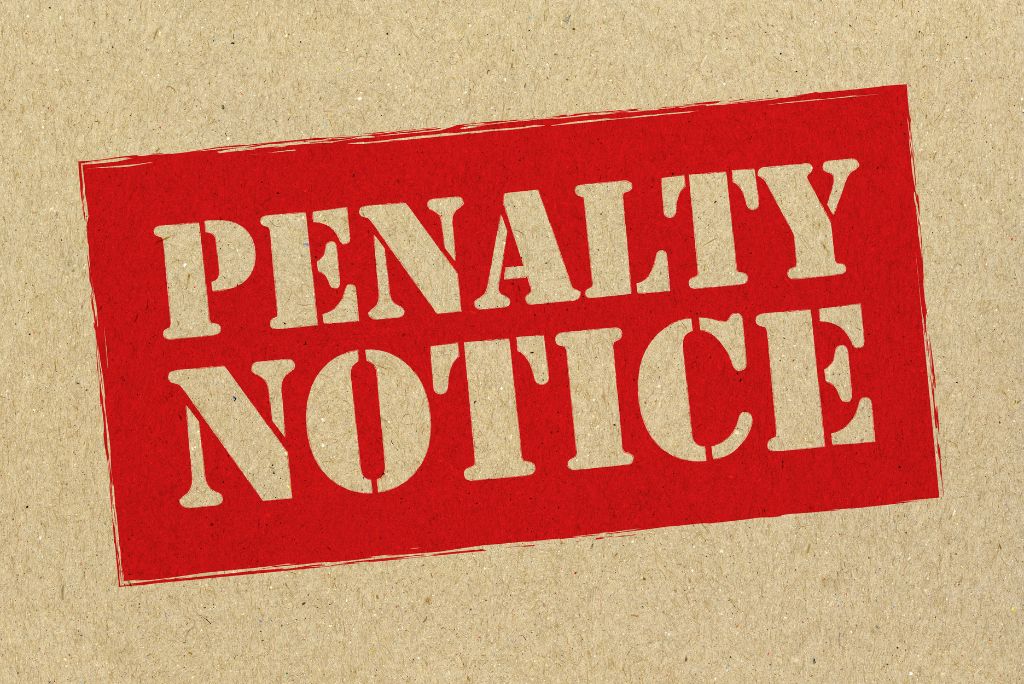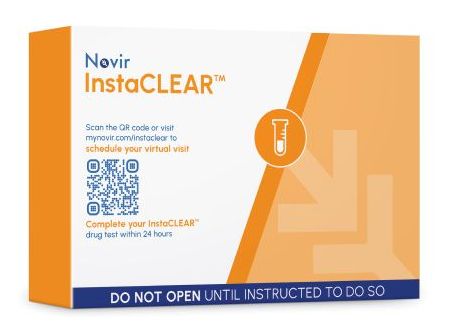In today’s compliance-driven landscape, employers operating within the transportation industry must be keenly aware of their obligations under 49 CFR Parts 40 and 382. The Department of Transportation (DOT) and Federal Motor Carrier Safety Administration (FMCSA) established these regulations, which outline strict requirements for drug and alcohol testing of safety-sensitive employees. Employers must adhere to these critical mandates to avoid severe consequences, including hefty fines, suspension or revocation of operating authority, and potential damage to company reputation. This article highlights DOT compliance and the significant penalties for non-compliance that employers face if they neglect to follow these essential regulations.
What Is DOT Compliance?
DOT compliance refers to adhering to the regulations and guidelines set forth by the United States Department of Transportation (DOT) to ensure the safety and efficiency of the transportation industry. These regulations apply to commercial vehicles and drivers, as well as companies and organizations involved in the transportation of goods and passengers across the nation. The US DOT regulations apply to the FMCSA, FAA, FRA, FTA, PHMSA and also to the USCG. Most regulated employers and employees fall under FMCSA, and that is the focus of this article.
Compliance encompasses various aspects, such as driver qualifications, vehicle maintenance, hours of service, drug and alcohol testing, hazardous materials transportation, and record keeping.
Why Is DOT Compliance so Important?
DOT compliance is crucial for several reasons, all of which contribute to the safety, efficiency, and integrity of the transportation industry. The primary reasons for the importance of DOT compliance are:
Public safety
Compliance with DOT regulations ensures that transportation companies and their employees prioritize public safety. By adhering to strict guidelines, regulated employers reduce the risk of accidents and fatalities resulting from factors such as driver fatigue, vehicle malfunction, and substance abuse.
Employee safety
DOT (FMCSA) compliance also protects the safety of drivers and other employees in the transportation industry. Regulations related to driver qualifications, hours of service, and drug and alcohol testing help ensure that employees are fit for duty and not creating a hazards for themselves or others.
Environmental protection
DOT regulations, specifically those related to hazardous materials transportation, help prevent environmental contamination by enforcing proper handling, packaging, and disposal procedures for dangerous substances. Drivers of trucks that are required to be placarded for hazardous materials must also be drug and alcohol tested.
Industry standardization
DOT compliance establishes a consistent set of rules and guidelines that transportation companies must follow. This standardization facilitates cooperation and coordination among various industry stakeholders and ensures a level playing field for all participants.
Legal consequences
Companies that fail to comply with DOT regulations can face severe penalties, including fines, suspension or revocation of operating authority, and even criminal charges in some cases. Compliance helps companies avoid these consequences and maintain their operational and financial stability.
Reputation management
Compliance with DOT regulations reflects positively on a company’s reputation, demonstrating a commitment to safety, professionalism, and industry best practices. A strong reputation can contribute to business growth and improved relationships with customers, suppliers, and regulators. Many employers use their safety practices as marketing tools.
Operational efficiency
Adhering to DOT regulations helps companies identify and address potential operational inefficiencies, such as poor vehicle maintenance or inadequate employee training. Improved efficiency can lead to cost savings and increased productivity.
What Happens If You Don’t Comply with Regulations?
Here are some fines and penalties for non-compliance with DOT regulations:
Civil penalties
Employers and individuals may face civil penalties for violations of DOT regulations. Fines can range from hundreds to tens of thousands of dollars per violation, depending on the severity and frequency of the non-compliance. In some cases, penalties can exceed $100,000 per violation if they involve transportation of hazardous materials.
Out-of-service orders
If a driver or vehicle is found to be in violation of certain safety regulations, an out-of-service order may be issued. This order requires the immediate cessation of operation until the violation is corrected, which can lead to lost revenue and productivity for the company.
Suspension or revocation of operating authority
In severe cases of non-compliance or repeated violations, a company’s operating authority may be suspended or revoked by the FMCSA. This can have a significant impact on the company’s ability to conduct business and may lead to its closure.
Criminal penalties
In cases where non-compliance is found to be willful, knowing, or reckless, criminal penalties may be imposed, including imprisonment and substantial fines for both individuals and companies.
DOT Fines for Non-Compliance
Here are some common DOT penalties for non-compliance, effective January 6, 2023:
Recordkeeping
A person or entity that fails to prepare or maintain a record required by part 40 of this title and parts 382, subpart A, B, C, D, E, or F, 385, and 390 through 399 of this subchapter, or prepares or maintains a required record that is incomplete, inaccurate, or false, is subject to a maximum civil penalty of $1,496 for each day the violation continues, up to $14,960.
Knowing falsification of records
A person or entity that knowingly falsifies, destroys, mutilates, or changes a report or record required by parts 382, subpart A, B, C, D, E, or F, 385, and 390 through 399 of this subchapter, knowingly makes or causes to be made a false or incomplete record about an operation or business fact or transaction, or knowingly makes, prepares, or preserves a record in violation of a regulation order of the Secretary is subject to a maximum civil penalty of $14,960 if such action misrepresents a fact that constitutes a violation other than a reporting or recordkeeping violation.
Non-recordkeeping violations
A person or entity that violates part 382, subpart A, B, C, D, E, or F, part 385, or parts 390 through 399 of this subchapter, except a recordkeeping requirement, is subject to a civil penalty not to exceed $18,170 for each violation.
Non-recordkeeping violations by drivers
A driver who violates parts 382, subpart A, B, C, D, E, or F, 385, and 390 through 399 of this subchapter, except a recordkeeping violation, is subject to a civil penalty not to exceed $4543.
Violation of 49 CFR 392.5
A driver placed out of service for 24 hours for violating the alcohol prohibitions of 49 CFR 392.5(a) or (b) who drives during that period is subject to a civil penalty not to exceed $3740 for a first conviction and not less than $7481 for a second or subsequent conviction.
(b) Commercial driver’s license (CDL) violations
Any employer, employee, medical review officer, or service agent who violates any provision of 49 CFR part 382, subpart G, or any person who violates 49 CFR part 383, subpart B, C, E, F, G, or H, is subject to a civil penalty not to exceed $6,755; except:
- A CDL-holder who is convicted of violating an out-of-service order shall be subject to a civil penalty of not less than $3740 for a first conviction and not less than $7481 for a second or subsequent conviction;
- An employer of a CDL-holder who knowingly allows, requires, permits, or authorizes an employee to operate a CMV during any period in which the CDL-holder is subject to an out-of-service order, is subject to a civil penalty of not less than $6,755 or more than $37,400; and
- An employer of a CDL-holder who knowingly allows, requires, permits, or authorizes that CDL-holder to operate a CMV in violation of a Federal, State, or local law or regulation pertaining to railroad-highway grade crossings is subject to a civil penalty of not more than $19,389.
What to Do to Ensure DOT Compliance?
Partnering with InOut Labs offers a comprehensive solution for companies seeking to ensure compliance with DOT regulations and avoid fines and penalties associated with non-compliance with required drug and alcohol. As a trusted provider of drug and alcohol testing services, InOut Labs adheres to the highest industry standards and understands the complexities of DOT requirements, particularly those outlined in 49 CFR Parts 40 and 382. By working with InOut Labs, you can rest assured that your drug and alcohol testing program is fully compliant, mitigating the risk of costly enforcement actions.
How Can a Company Be DOT Compliant?
Here are some essential steps to achieve and maintain DOT compliance:
Understand the relevant regulations
Familiarize yourself with the specific DOT regulations that apply to your company, such as the Federal Motor Carrier Safety Regulations (FMCSRs), the Hazardous Materials Regulations (HMRs), and the drug and alcohol testing regulations under 49 CFR Parts 40 and 382.
Implement policies and procedures
Develop and implement written policies and procedures in accordance with the DOT requirements. These should cover driver qualifications, hours of service, vehicle maintenance, drug and alcohol testing, hazardous materials transportation, and record keeping.
Driver qualification and training
Ensure that all drivers meet the DOT’s minimum qualifications, including possessing a valid Commercial Driver’s License (CDL), passing a DOT physical examination, and undergoing appropriate training for their role.
Drug and alcohol testing program
Establish a drug and alcohol testing program for safety-sensitive employees in accordance with the regulations. This includes pre-employment, random, post-accident, reasonable suspicion, return-to-duty, and follow-up testing.
Record keeping
Maintain accurate and up-to-date records of driver qualifications, drug and alcohol testing results, vehicle inspections and maintenance, HOS logs, and any other documentation required by DOT regulations.
Hazardous materials compliance
If your company transports hazardous materials, ensure compliance with the HMRs, including proper labeling, packaging, handling, and documentation.
Regular audits and monitoring
Conduct regular internal audits and monitoring to ensure ongoing compliance with DOT regulations. Address any identified issues promptly to prevent violations and penalties.
Stay informed
Keep up-to-date with any changes in DOT regulations, and update your company’s policies and procedures accordingly.
InOut Labs’ team of experts is dedicated to staying up-to-date with the latest regulatory changes and providing personalized support to help clients navigate the compliance process with ease. This way, your company can focus on its core business operations while maintaining a strong commitment to safety and regulatory compliance within the transportation industry.


